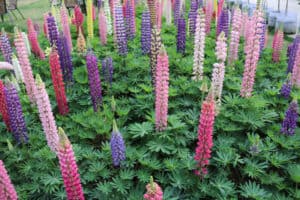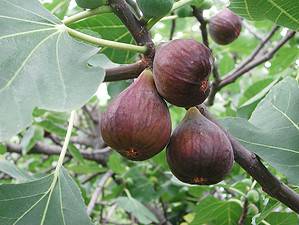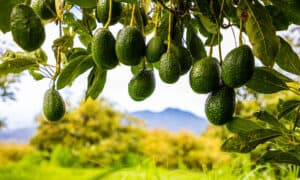Have you ever tasted a Sekai-Ichi apple? It’s unlikely that you have, considering most of these apples cost $20 or more- each. That’s right: Sekai-Ichi apples don’t have a typical apple price tag, boasting a cost almost as large as the apples themselves. But why do Sekai-Ichi apples cost so much, and how can you get your hands on one?
In this article, we will address everything you need to know about these apples and why they cost what they cost. We will also go over where you might be able to taste one of these exclusive apple varieties for yourself, as well as some other types of apples that might even taste better than this one. Let’s get started!
Sekai-Ichi Apples: An Apple of Distinct Size
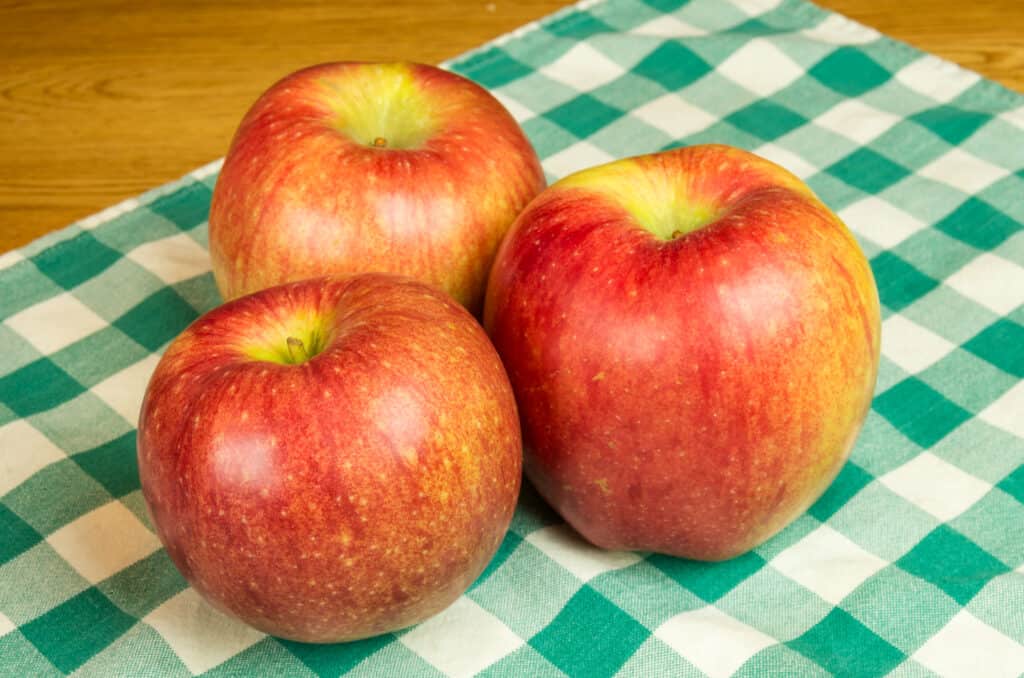
Sekai Ichi apples are expensive fruits originating from Japan.
©Zigzag Mountain Art/Shutterstock.com
According to a study published in 1973, Sekai-Ichi apples once cost $3 each. While this may not seem like a lot of money, $3 is an extreme price to pay for a single apple. This is one of the reasons why Sekai-Ichi apples became so popular. There was a huge interest commercially in growing and selling them, particularly at this price point.
However, all of this fuss feels unnecessary when you consider the fact that the Sekai-Ichi apple is not the most delicious of apples. In fact, its large size and fairly basic taste make it undesirable to the average chef. Plus, given the fact that Sekai-Ichi apples can weigh up to 2 pounds individually (the average apple weighs less than a half pound), it is difficult to store them at this size. Most large apples rot or go too soft before they can be fully appreciated.
But this still doesn’t answer the question: why are these enormous apples so expensive?
Why Do Sekai-Ichi Apples Cost So Much?
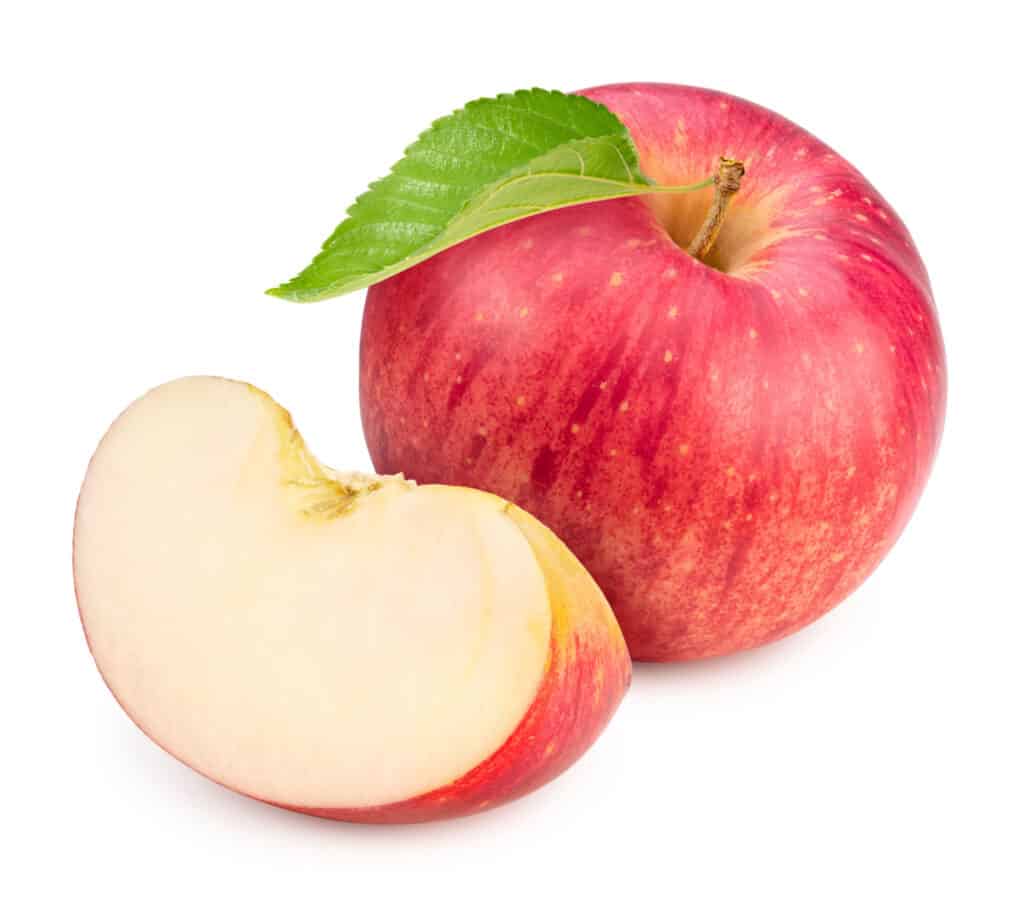
The average Sekai-Ichi apple weighs 1.5-2 pounds.
©MERCURY studio/Shutterstock.com
The main reason Sekai-Ichi apples cost so much is because of their size and general appearance. While the average Fuji or red delicious apple also looks appetizing, Sekai-Ichi apples simply grow larger and more uniform compared to other apple varieties. The way that these apples look directly influences their popularity and cost. They are exceedingly rare to find but highly desired, given their size and appearance.
In addition to this, Sekai-Ichi (which translates roughly to “best in the world”) apples are difficult to grow. In Japan, the primary commercial growing location of this apple cultivar, Sekai-Ichi apple trees are hand-pollinated and cared for. There is a special technique that orchardists use to get these apples so big, and it is a time-consuming and expensive process.
This apple tree is hand pollinated to ensure no cross-contamination with other cultivars, something that apple trees are notorious for doing. Once pollinated, the fruit begins to appear. However, Sekai-Ichi apple growers thin and prune their trees each and every growing season. This ensures that only the healthiest, largest fruit remains.
While this means that the surviving fruit will be large and full of nutrients provided by the carefully tended tree, it also means that the overall supply of these apples is very limited. As with all things that are in limited supply, Sekai-Ichi apples are highly expensive once they reach the market. This is especially true once you consider all of the labor and care that goes into growing them in the first place!
Where Can I Find Sekai-Ichi Apples?
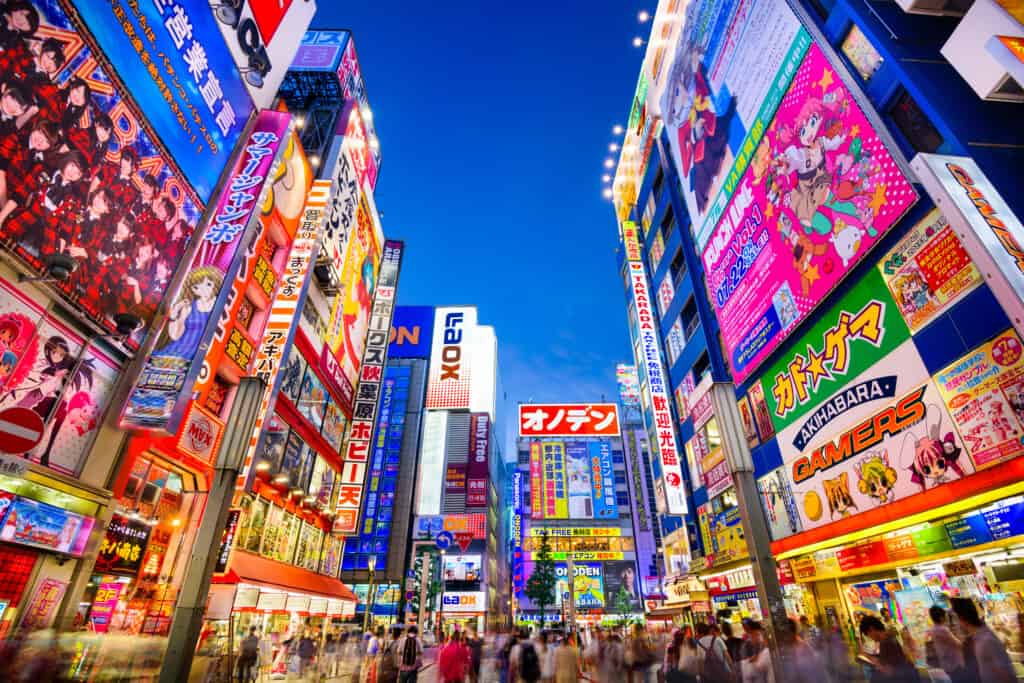
Luxury resorts and hotels in locations such as Tokyo, Hong Kong, and Shanghai also offer these apples as gifts to their guests.
©ESB Professional/Shutterstock.com
Add you can no doubt guess, it is extremely difficult to find Sekai-Ichi apples. Given that they are such a status symbol and delicacy in Japan, it is difficult to find these apples in local marketplaces. In fact, apples that are sent to market in Japan have different grading systems and levels of cost, depending on how large and beautiful they are.
Luxury resorts and hotels in locations such as Tokyo, Hong Kong, and Shanghai also offer these apples as gifts to their guests, or complimentary refreshments. If you happen to stay in a hotel that offers you one of these apples, you likely don’t have a problem paying up to $21 for a single apple!
There are some Sekai-Ichi apple cultivators in North America, but they are typically not considered true cultivars. Most of the growing practices and standards in the United States especially are not nearly as detailed or careful compared to the growing practices of apples in Japan. The average Sekai-Ichi in the states rarely reaches the size of a Sekai-Ichi in Japan.
However, apples grown in North America are going to be significantly less expensive than apples grown in Japan. In fact, some apple growers and cultivators sell their apples for as little as $3 each- the cost of Sekai-Ichis in 1973! While they are rare, you can indeed find these huge apples in the States. However, there are other apple cultivars with more flavor.
What Apple Cultivars Are Similar to Sekai-Ichi Apples?
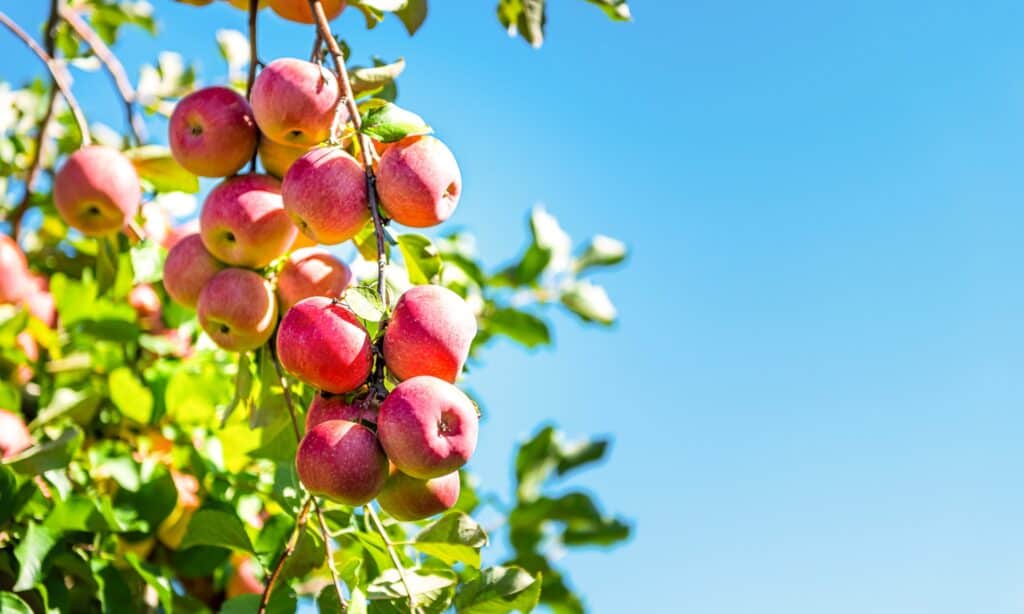
There are some Sekai-Ichi apple cultivators in North America, but these apples are typically not considered true Sekai-Ichi cultivars.
©iStock.com/ablokhin
There are a number of large apple cultivars that are regularly commercially grown in North America and around the world. Some apple cultivars that taste and look similar to Sekai-Ichi apples include:
- Honeycrisps
- Peasgood’s Nonesuchs
- Cameos
- Hokutos
- Cosmic Crisps
Up Next
- The 6 Best Children’s Books About Apples Kids Love
- 8 Fruits That Are Beyond Expensive in Japan
- Discover the 12 Most Populated Cities in Japan
The photo featured at the top of this post is © MERCURY studio/Shutterstock.com
Sources
- The Apple Industry in Japan, Available here: https://journals.ashs.org/hortsci/view/journals/hortsci/8/2/article-p81.xml
Thank you for reading! Have some feedback for us? Contact the AZ Animals editorial team.



